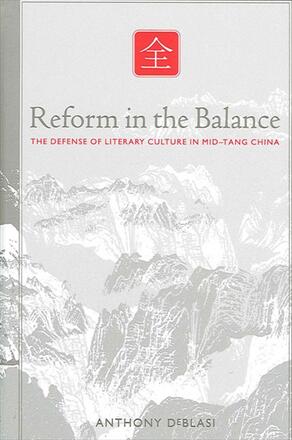
Reform in the Balance
The Defense of Literary Culture in Mid-Tang China
Alternative formats available from:
Presents the intellectual milieu of mid-Tang China, particularly the conservative defense of literary pursuits and cultural tradition in the face of political and social uncertainty.
Description
Anthony DeBlasi offers a remapping of China's intellectual landscape during the late eighth and early ninth centuries. Recreating a world of intense philosophical debate, influenced by political uncertainty and social disorder, he reveals the logic behind the period's most popular philosophical positions.
Reform in the Balance casts aside traditional evaluations of the predominance of the Ancient Style Movement (guwen) during this era. Building on recent scholarship and his own reading of Tang sources, the author argues that the period's dominant intellectual position advocated moderately conservative cultural reform designed to defend literary pursuits and the broader cultural tradition from more strident critics.
Anthony DeBlasi is Assistant Professor of East Asian Studies at the University at Albany, State University of New York.
Reviews
"…DeBlasi's book is a valuable achievement in the expanding scholarship on Tang-Song intellectual history. It raises and explores a new question and makes important points along the way. " — Journal of the American Oriental Society
"This book makes an important contribution to the study of Tang intellectual history. DeBlasi convincingly revises the conventional view that the so-called Ancient Style Movement predominated in the period under consideration. Instead, he shows that there was a literary mainstream—hegemonic literary culture—that held sway, one that differed sufficiently and significantly from the assumptions and goals of the guwen movement. DeBlasi has done the field of Chinese intellectual history a great service by painting a vivid picture of the mid-Tang intellectual landscape and offering insights into a contested world of intellectual alternatives aimed at the betterment of state and society. " — On-cho Ng, author of Cheng-Zhu Confucianism in the Early Qing: Li Guangdi (1642–1718) and Qing Learning